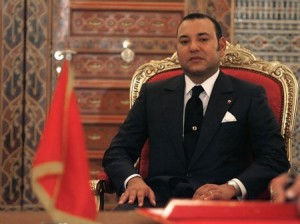Special to WorldTribune.com
WASHINGTON — Al Qaida has sought to expand recruitment in Morocco by highlighting official corruption in the North African kingdom, a report said.
The Jamestown Foundation asserted that Al Qaida Organization in the Islamic Maghreb launched a campaign against Moroccan King Mohammed.

In a video posted on Islamist networks, AQIM has released details of corruption within the royal family.
“It represents AQIM’s first real and open threat against the kingdom,” the report, titled “Al Qaida in the Islamic Maghreb Attacks Morocco’s ‘Kingdom of Corruption and Despotism,’ ” said.
Researcher Dario Cristiani said the AQIM video, released in September 2013, was based on leaked U.S. State Department cables as well as open source reports. Cristiani said the video appeared to mark an AQIM effort to overcome repeated failures by its cells in Morocco. The last successful attack was in April 2011 when 17 people were killed in a bombing in Marrakesh.
“This is an attempt to push them to join their ranks and direct their rage against the system — embodied by the king — in an AQIM-guided jihad,” the report said.
The report, dated Dec. 13, 2013, said Al Qaida lost its operational capacity in Morocco in a crackdown in 2003. An AQIM-aligned group, Moroccan Islamic Combatant Group, was described as “more of a label” rather than an organized movement.
The recent video was said to mark an AQIM strategy to renew operations
in much of North Africa. The report did not rule out that Al Qaida, whether
directly or through proxies, could begin operations in Morocco. In August
2013, Rabat cited an AQIM presence in such cities as Fez, Meknes, Taounate
and Tiznit.
“AQIM is in a process of internal and operational reorganization
following the disruption of its networks in Northern Mali,” the report said.
“While local cells of jihadists tied to Al Qaida exist in Morocco and infiltration from neighboring countries remains possible given the porous nature of regional borders, their presence cannot be compared to that of groups in other Maghreb countries such as Algeria, Libya and Tunisia.”

You must be logged in to post a comment Login